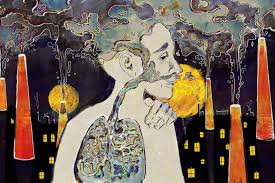

air pollution has a significant impact on mental health, with emerging studies linking long-term exposure to harmful pollutants to an increased risk of mental health disorders. Fine particulate matter (PM2.5), nitrogen dioxide, and other toxic substances found in polluted air can penetrate deep into the lungs and bloodstream, affecting the brain. Chronic exposure to these pollutants has been associated with higher rates of anxiety, depression, and cognitive decline, particularly in urban areas where pollution levels are typically higher.
The stress caused by living in a polluted environment can also contribute to mental health issues. For individuals who are already vulnerable, the constant exposure to poor air quality can exacerbate feelings of helplessness and anxiety. This type of environmental stress can affect the nervous system, leading to mood disturbances and a decreased ability to cope with daily stressors. Additionally, air pollution is linked to inflammation in the brain, which has been shown to play a role in the development of mental health disorders.
Children and the elderly are particularly at risk. Studies suggest that exposure to air pollution during childhood can lead to long-term developmental issues, including learning difficulties, attention problems, and emotional regulation disorders. In older adults, continued exposure to polluted air has been linked to an increased risk of dementia and Alzheimer’s disease, as it can accelerate cognitive decline and impair brain function over time.
Addressing the mental health impacts of air pollution involves a multi-faceted approach. Governments need to enforce stricter air quality regulations, and individuals can take steps to protect their health by limiting outdoor activities on days when air quality is poor. At a personal level, increasing indoor air quality through air purifiers and plants, as well as focusing on mental health care through therapy, mindfulness, and stress management, can help reduce the mental health burden associated with air pollution.




 click and follow Indiaherald WhatsApp channel
click and follow Indiaherald WhatsApp channel